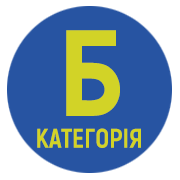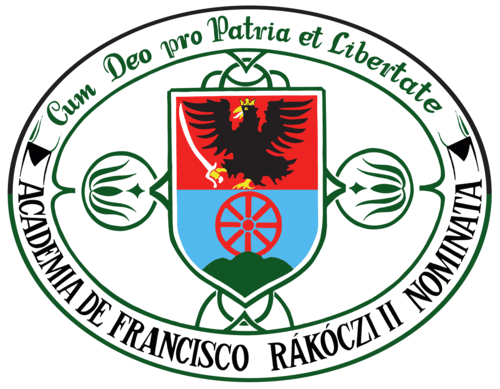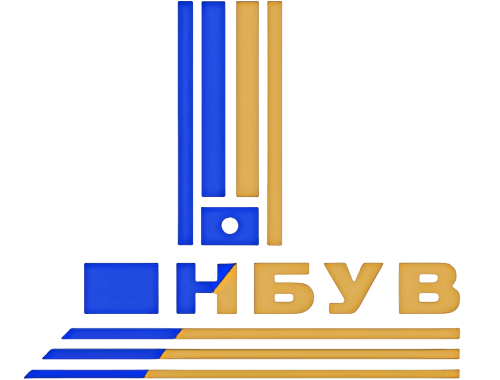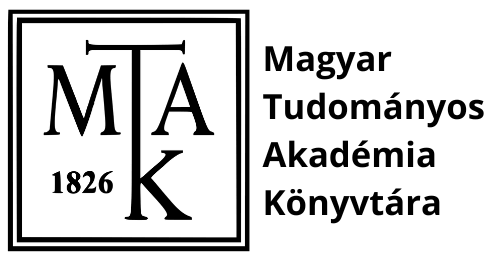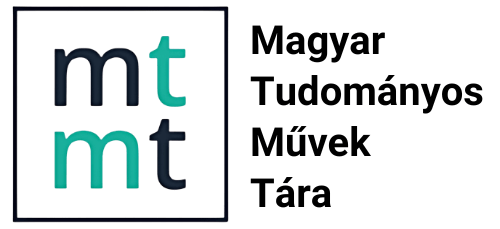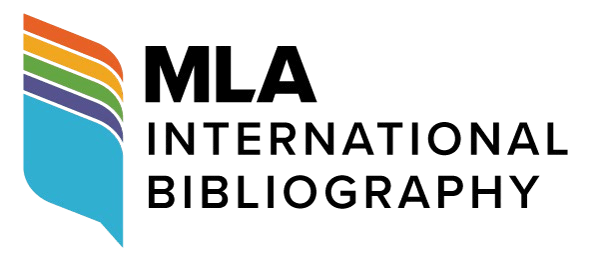„Mér nem mondod magyarul?”
Diaszporizáció és nyelvi ideológiák
DOI:
https://doi.org/10.58423/2786-6726/2022-1-162-182Kulcsszavak:
diaszporizáció, diaszpóra, etnográfia, identitás, Katalónia, kritikai szocio¬lingvisztika, migráció, nyelvi ideológiákAbsztrakt
A nyelvi ideológiák kutatási területe már több, mint négy évtizedes múltra tekint vissza. A társas létformák és a beszélés formái közötti közvetítő kapocsra rámutató nyelvideológia-kutatások mégis csak újabban kezdtek a diaszporizáció kérdésére is figyelmet fordítani. Az általam végzett etnográfiailag megalapozott kritikai szociolingvisztikai kutatás e két kutatási témát ötvözi. Ebben a tanulmányban tehát azt vizsgálom, hogy milyen nyelvi ideológiák hatják át a diaszporizáció folyamatát és gyakorlatait. Ehhez a Katalóniában élő magyarok körében végzett doktori kutatásomra és annak terepmunka-tapasztalataira támaszkodom. A migráció és a diaszpórizáció szociolingvisztikai kutatása azokat a dinamikus és lokális folyamatokat követi nyomon, amelyeken keresztül a diaszpórikus identitások fölépülnek, érvényre jutnak, és akár még át is alakulhatnak az adott interakciókban. Tehát az ideológiákra és az identitásokra (így a diaszpórikus identitásokra is) társas konstruktivista kiindulópontból tekintek, vagyis azok eleve adott jellemzői helyett arra irányítom a figyelmet, hogy ezek miképpen válnak relevánssá és szembetűnővé egy adott interakció során, és ezek a beszélők perspektíváiban milyen többletjelentésekkel ruházódnak föl. A tanulmányban egy társalgásrészletet elemzek, amelyben a résztvevők különböző ideológiai pozíciókat és identitásokat konstruálnak a nemzeti hovatartozás, a regionalitás, a nyelvek, valamint az életkori és nemi határok mentén. Ebben a társalgásban a két kutatási résztvevő először találkoztak egymással, az ilyen interakciók pedig azt segítik, hogy a kutató el tudjon igazodni abban, hogy mik azok a nyelvi problémák, amelyek valóban számítanak a beszélők számára, hiszen itt a résztvevők különböző egyeztetéseket folytatnak a beszélői szerepek kialakítása és fenntartása végett. Az elemzés alapján azt állítom, hogy a beszélőket egyszerre többféle nyelvi ideológia veszi körül, amelyek különböző mértékben válnak reflektálttá, a társadalmi működésekre is érzékeny nyelvi elemzés azonban nem hagyhatja ezeket figyelmen kívül. Ehhez pedig az is szükséges, hogy a kutató-terepmunkás számot vessen a saját szerepével az adatok létrehozásában.
Hivatkozások
Androutsopoulos, Jannis – Lexander, Kristin Vold 2021. Digital polycentricity and diasporic connectivity: A Norwegian-Senegalese case study. Journal of Sociolinguistics 25/5: pp. 720–736. DOI: https://doi.org/10.1111/josl.12518.
Bartha, Csilla 2005. Constructing different ethnic identities: Symbolic values, linguistic ideologies and language maintenance in a Hungarian American immigrant community (New Brunswick, NJ). In: Cabeza Pereiro, Carman – Lorenzo Suárez, Anxo M. – Rodríguez-Yáñez, Xoán Paulo eds. Bilingual Communities and Individuals: Proceedings from the First International Symposium on Bilingualism. Vigo: Universidade de Vigo. pp. 21–33.
Bodó Csanád 2016. Nyelvi ideológiák és különbségek [Language ideologies and differences]. Kolozsvár: Nemzeti Kisebbségkutató Intézet. (In Hungarian).
Borbély Anna – Bartha Csilla 2021. Interjú, lejegyzés és kódolás a BUSZI-2-ben [Interview, transcription, and coding in BUSZI-2]. In: Kontra Miklós – Borbély Anna szerk. Tanulmányok a budapesti beszédről: A Budapesti Szociolingvisztikai Interjú alapján [Studies on Budapest talk according tot he Budapest Sociolinguistics Interview]. Budapest: Gondolat. 108–142. (In Hungarian)
Borbély Anna – Vančoné Kremmer Ildikó – Hattyár Helga szerk. 2009. Nyelvideológiák, attitűdök és sztereotípiák: 15. Élőnyelvi Konferencia [Language ideologies, attitudes, and stereotypes: 15th Hungarian Sociolinguistics Conference]. Budapest: Tinta Könyvkiadó. (In Hungarian).
Block, David 2008. On the appropriateness of the metaphor of LOSS. In: Rubdy, Rani – Tan, Peter eds. Language as Commodity: Global Structures, Local Marketplaces. London: Continuum. pp. 187– 203.
Blommaert, Jan – Rampton, Ben 2016. Language and Superdiversity. In: Arnaut, Karel – Blommaert, Jan – Rampton, Ben – Spotti, Massimiliano eds. Language and Superdiversity. New York: Routledge. pp. 21–48.
Brubaker, Rogers 2005. The “diaspora” diaspora. Ethnic and Racial Studies 28/1: pp. 1–19. DOI: https://doi.org/10.1080/0141987042000289997.
Bucholtz, Mary – Hall, Kira 2005. Identity and interaction: A sociocultural linguistic approach. Discourse Studies 7/4–5: pp. 585–614. DOI: https://doi.org/10.1177/1461445605054407.
Cameron, Deborah 2003. Gender and Language Ideologies. In: Holmes, Janet – Meyerhoff, Miriam eds. The Handbook of Language and Gender. Oxford: Blackwell. pp. 447–467. DOI: https://doi.org/10.1002/9780470756942.ch19.
Catedral, Lydia 2021. The (im)possibility of sociolinguistic hybridity: Power and scaling in post-soviet, transnational life. Journal of Sociolinguistics 25/3: pp. 324–349. DOI: https://doi.org/10.1111/josl.12461.
Codó, Eva 2018. Lifestyle residents in Barcelona: A biographical perspective on linguistic repertoires, identity narrative and transnational mobility. International Journal of the Sociology of Language 250: pp. 11–34. DOI: https://doi.org/10.1515/ijsl-2017-0053.
Costa, James 2019. Regimes of language and the social, hierarchized organization of languages. Language & Communication 66: pp. 1–5. DOI: https://doi.org/10.1016/j.langcom.2018.10.002.
Csányi, Zoltán 2018. Exploring the behavioural aspects of migration decisions in the biography of a returner. Análise Europeia 3: pp. 58–90.
Fenyvesi, Anna ed. 2005. Language Contact Outside Hungary: Studies on Hungarian as a Minority Language. Amszterdam – Philadelphia: John Benjamins.
Gal, Susan 2002. Language ideologies and linguistic diversity: Where culture meets power. In: Keresztes László – Maticsák Sándor szerk. A magyar nyelv idegenben [The Hungarian Language Abroad]. Debrecen: Debreceni Egyetem. 197–204. o.
Gal, Susan 2016. Sociolinguistic differentiation. In: Coupland, Nikolas ed. Sociolinguistics: Theoretical Debates. Cambridge: Cambridge University Press. pp. 113–136. DOI: https://doi.org/10.1017/CBO9781107449787.006.
Gal, Susan – Irvine, Judith 2019. Signs of Difference: Language and Ideology in Social Life. Cambridge: Cambridge University Press.
Goebel, Zane 2020. Rapport and the discursive co-construction of social relations in fieldwork settings. In: Zane Goebel ed. Rapport and the Discursive Co-Construction of Social Relations in Fieldwork Settings. Berlin: de Gruyter. pp. 1–16.
Hatoss, Anikó 2020. Agency and ideology in language maintenance: Hungarian immigrants’ narratives on assimilationist post-war Australia. International Journal of Multilingualism 17/4: pp. 411–429. DOI: https://doi.org/10.1080/14790718.2018.1504950.
Heller, Monica – Pietikäinen, Sari – Pujolar, Joan 2018. Critical Sociolinguistic Research Methods: Studying Language Issues That Matter. New York – London: Routledge.
Heltai János Imre 2020. Transzlingválás – elmélet és gyakorlat [Translanguaging – theory and practice]. Budapest: Gondolat. (In Hungarian).
Hires-László Kornélia – Karmacsi Zoltán – Márku Anita szerk. 2011. Nyelvi mítoszok, ideológiák, nyelvpolitika és nyelvi emberi jogok Közép-Európában elméletben és gyakorlatban: A 16. Élőnyelvi Konferencia előadásai [Language myths, ideologies, language policy and linguistic human rights in Central Europe in theory and practice: the talks of the 16th Hungarian Sociolinguistics Conference]. Budapest: Tinta Könyvkiadó. (In Hungarian)
Horner, Kristine 2009. Language, citizenship and Europeanization: Unpacking the discourse of integration. In: Hogan-Brun, Gabrielle – Mar-Molinero, Clare – Stevenson, Patrick eds. Discourses on Language and Integration. Amsterdam – Philadelphia: John Benjamins. pp. 109–129.
Irvine, Judith 2022. Revisiting theory and method in language ideology research. Journal of Linguistic Anthropology. Online közzétéve: 2022. január 17. DOI: https://doi.org/10.1111/jola.12335.
Karimzad, Farzad – Catedral, Lydia 2018. Mobile (dis)connection: New technology and rechronotopized images of the homeland. Journal of Linguistic Anthropology 28/3: pp. 293–312. DOI: https://doi.org/10.1111/jola.12198.
Kontra Miklós 2020. Mi hiányzik a magyar szociolingvisztikából? [What is missing from Hungarian Sociolinguistics]. In: Heltai János Imre – Oszkó Beatrix szerk. Nyelvi repertoárok a Kárpát-medencében és azon kívül: Válogatás a 20. Élőnyelvi Konferencia (Budapest, 2018. augusztus 30. – szeptemebr 1.) előadásaiból [Linguistic repertoires in the Carpathian basin and beyond: Selected volume of the 20th Hungarian Sociolinguistic conference (Budapest, 30 August 2018 – 1 September)]. Budapest: Nyelvtudományi Intézet. 20–43. o. (In Hungarian).
Kroskrity, Paul V. 2000. Regimenting languages: language ideological perspectives. In: Kroskrity, Paul V. ed. Regimes of Language: Ideologies, Polities & Identities. Oxford: James Currey. pp. 1–34.
Laihonen, Petteri 2008. Language ideologies in interviews: A conversation analysis approach. Journal of Sociolinguistics 12/5: pp. 668–693. DOI: https://doi.org/10.1111/j.1467-9841.2008.00387.x.
Laihonen, Petteri 2011. A nyelvideológiák elmélete és használhatósága a magyar nyelvvel kapcsolatos kutatásokban [The theory and utility of language ideologies in research in connection with the Hungarian language]. In: Hires-László Kornélia – Karmacsi Zoltán – Márku Anita szerk. Nyelvi mítoszok, ideológiák, nyelvpolitika és nyelvi emberi jogok Közép-Európában elméletben és gyakorlatban: A 16. Élőnyelvi Konferencia előadásai [Language myths, ideologies, language policy and linguistic human rights in Central Europe in theory and practice: the talks of the 16th Hungarian Sociolinguistics Conference]. Budapest: Tinta Könyvkiadó. 20–27. o. (In Hungarian).
Lanstyák István 2017. Nyelvi ideológiák: Általános tudnivalók és fogalomtár [Language ideologies: General information and glossary].
http://dragon.unideb.hu/~tkis/li_nyelvideologiai_fogalomtar2.pdf (Accessed: 10 March 2020). (In Hungarian).
Ludányi András 2015. A szétszórtsági tudat létrejötte magyar Amerikában [The sense of dispersion in Hungarian America]. Korunk [Our age] 26/3: 4–13. o. (In Hungarian).
Márquez Reiter, Rosina – Martín Rojo, Luisa eds. 2015. A Sociolinguistics of Diaspora: Latino Practices, Identities, and Ideologies. New York: Routledge.
Patiño-Santos, Adriana 2018. “No-one told me it would all be in Catalan!”: Narratives and language ideologies in the Latin American community at school. International Journal of the Sociology of Language 250: pp. 59–86. DOI: https://doi.org/10.1515/ijsl-2017-0055.
Paz, Alejandro I. 2015. The deteritorialization of latino educación: Noncitizen latinos in Israel and the everyday diasporic subject. In: Márquez Reiter – Martín Rojo eds. A Sociolinguistics of Diaspora: Latino Practices, Identities, and Ideologies. New York: Routledge. pp. 151–167.
Pujolar, Joan – Gonzàlez, Isaac 2013. Linguistic ’mudes’ and the de-ethnicization of language choice in Catalonia. International Journal of Bilingual Education and Bilingualism 16/2: pp. 138–152. DOI: https://doi.org/10.1080/13670050.2012.720664.
Rosa, Jonathan – Burdick, Christa 2016. Language ideologies. In: García, Ofelia – Flores, Nelson – Spotti, Massimiliano eds. The Oxford Handbook of Language and Society. Oxford: Oxford University Press. pp. 103–123. DOI: https://doi.org/10.1093/oxfordhb/9780190212896.013.15.
Rosa, Jonathan – Trivedi, Sunny 2017. Diaspora and language. In: Canagarajah, Suresh ed. The Routledge Handbook of Migration and Language. London – New York: Routledge. pp. 330–346.
Sabaté i Dalmau, Maria 2018. Exploring the interplay of narrative and ethnography: A critical sociolinguistic approach to migrant stories of dis/emplacement. International Journal of the Sociology of Language 250: pp. 35–58. DOI: https://doi.org/10.1515/ijsl-2017-0054.
Sebők Szilárd 2017. Meta és nyelv: Kísérletek a nyelvleírás nyelvének leírására [Meta and language: Experiments on the description of the language of language description]. Pozsony: Comenius Egyetem. (In Hungarian).
Silverstein, Michael 1979. Language structure and linguistic ideology. In: Clyne, Paul R. – Hanks, William F. – Hofbauer, Carol L. eds. The Elements: A Parasession of Linguistic Units and Levels. Chicago: Chicago Linguistic Society. pp. 193–247.
Szabó Gergely 2015. „Hogy fejezzem ki magam szépen?”: Nyelvi ideológiák az obszce-nitások mögött [‘How to put it nicely?’: Language ideologies behind obscenities]. Magyar Nyelvőr [Hungarian Language Guard] 139/3: 334–347. o. (In Hungarian).
Szabó Tamás Péter 2012. „Kirakunk táblákat, hogy csúnyán beszélni tilos”: A javítás mint gyakorlat és mint téma diákok és tanáraik metanyelvében [‘We put signs on no bad language’: Repair as practice and as a subject in the meta-language of students and their teachers]. Dunaszerdahely: Gramma. (In Hungarian).
Szabó-Törpényi Annamária Ulla 2013. Szociolingvisztikai vizsgálatok franciaországi magyarok körében [‘Sociolinguistic studies among Hungarians in France’]. PhD thesis. Budapest: Eötvös Loránd Tudományegyetem. (In Hungarian).
Theodoropoulou, Irene 2021: Nostalgic diaspora or diasporic nostalgia? Discursive and identity constructions of Greeks in Qatar. Lingua 263. DOI: https://doi.org/10.1016/j.lingua.2019.05.007.
Tsagarousianou, Roza – Retis, Jessica 2019. Diasporas, media, and culture: Exploring dimensions of human mobility and connectivity in the era of global interdependency. In: Retis, Jessica – Tsagarousianou, Roza eds. The Handbook of Diasporas, Media, and Culture. New Jersey: Wiley-Blackwell. pp. 1–20.
Tseng, Amelia – Hinrichs, Lars 2021. Introduction: Mobility, polylingualism, and change: Toward an updated sociolinguistics of diaspora. Journal of Sociolinguistics 25/5: pp. 649–661. DOI: https://doi.org/10.1111/josl.12532.
Werbner, Pnina 2015. The boundaries of diaspora: A critical response to Brubaker. In: Klager, Florian – Stierstorfer, Klaus eds. Diasporic Constructions of Home and Belonging. Berlin: De Gruyter. pp. 35 – 51.
Woolard, Kathryn A. 1989a. Double Talk: Bilingualism and the Politics of Ethnicity in Catalonia. Stanford: Stanford University Press.
Woolard, Kathryn A. 1998. Language ideology as a field of inquiry. In: Schieffelin, Bambi B. – Woolard, Kathryn A. – Kroskrity, Paul V. eds. Language Ideologies. Practice and Theory. New York – Oxford: Oxford University Press. pp. 3–50.
Woolard, Kathryn A. 2016. Singular and Plural: Ideologies of Linguistic Authority in 21st Century Catalonia. Oxford – New York: Oxford University Press.
Woolard, Kathryn A. – Frekko, Susan 2013. Catalan in the twenty-first century: Romantic publics and cosmopolitan communities. International Journal of Bilingual Education and Bilingualism 16/2: pp. 129–137. DOI: https://doi.org/10.1080/13670050.2012.720663.
Downloads
Megjelent
Hogyan kell idézni
Folyóirat szám
Rovat
License
A szerzők megtartják a szerzői jogokat, és a folyóiratnak adják az első közlés jogát. A közlemény a Creative Commons 4.0 Nemzetközi Licenc (CC BY 4.0) feltételei szerint kerül közzétételre, amely lehetővé teszi mások számára annak megosztását és terjesztését, feltéve, hogy megfelelően hivatkoznak a szerző(k)re és a tanulmány vagy recenzió első megjelenésére ebben a folyóiratban.

